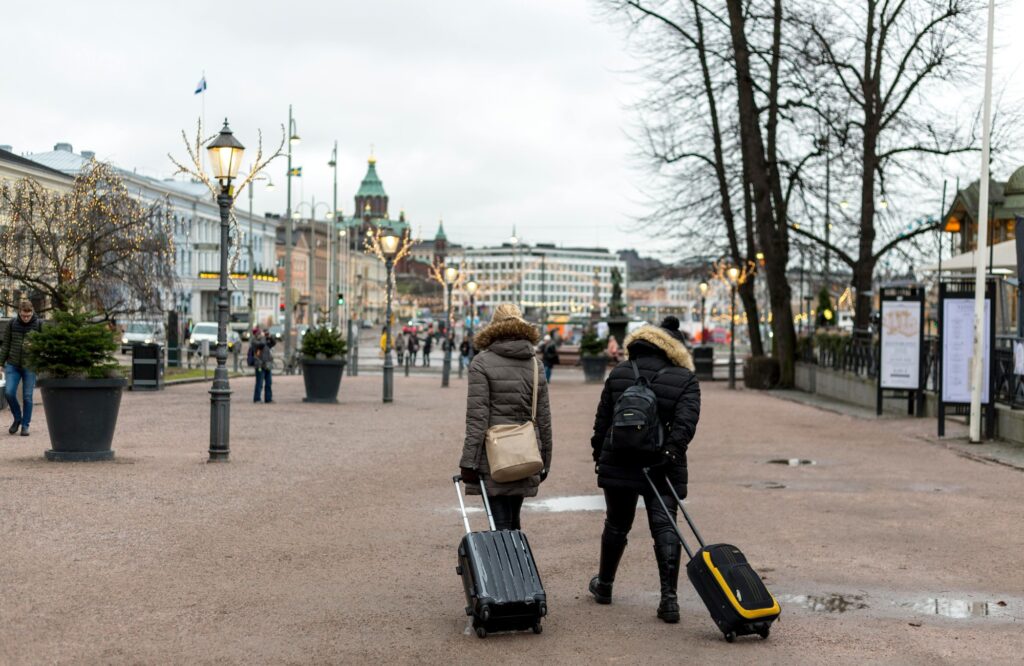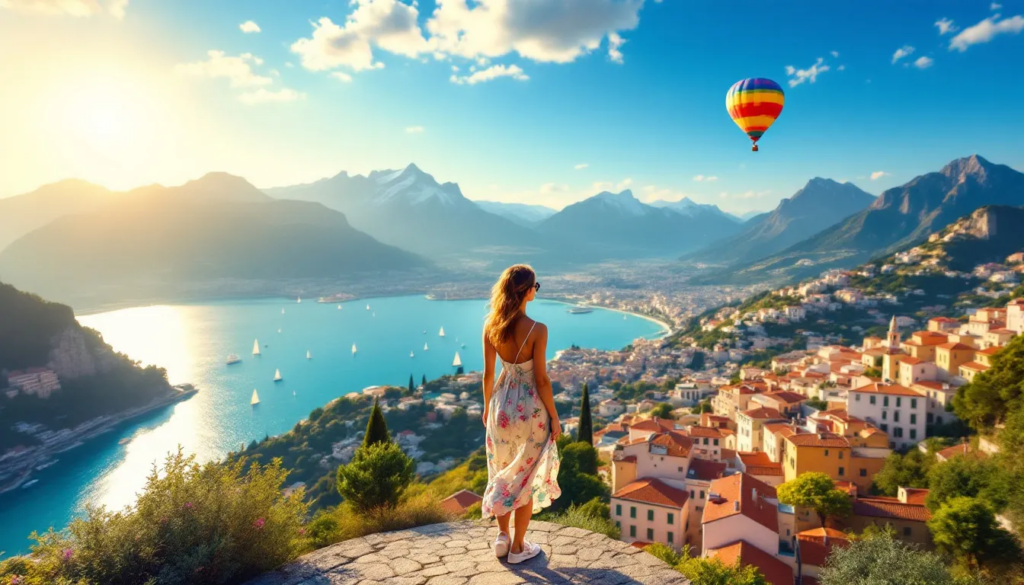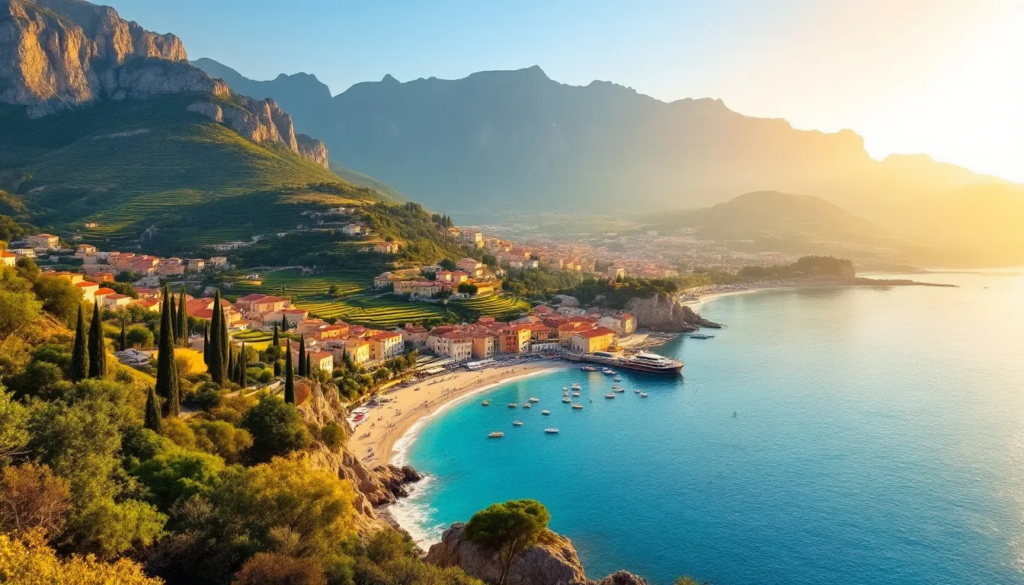Creating the perfect Italian holiday itinerary is about more than ticking cities off a list. It’s about connecting with a country that blends ancient history, breathtaking landscapes, and timeless cuisine into one unforgettable trip. Whether you’re dreaming of standing beneath the Sistine Chapel’s ceiling, strolling through cobblestone streets in Florence, or sipping wine along the Adriatic coast, the key is balance: famous landmarks paired with authentic local experiences.
Italy invites travelers to slow down, explore at their own pace, and enjoy every sensory moment from the scent of espresso on a quiet morning to the sound of church bells echoing over hill towns. In this guide, you’ll find practical tips, a 10-day sample itinerary, and insider advice to help you plan a journey that’s as stress-free as it is enriching.
How Many Days Do You Need for an Italian Holiday?
Most travelers spend 10 to 14 days in Italy to comfortably explore a mix of major cities and smaller regions. Anything shorter than a week can feel rushed, especially if you’re visiting multiple cities connected by regional trains or flights.
Here’s a quick reference for planning your trip length:
| Trip Length | Ideal For | Example Route |
|---|---|---|
| 7 Days | First-timers, city highlights | Rome → Florence → Venice |
| 10 Days | Balanced sightseeing + relaxation | Rome → Florence → Venice → Le Marche |
| 14 Days | In-depth exploration + local immersion | Milan → Lake Como → Florence → Le Marche → Rome |
Shorter itineraries work well for those focused on one region, such as Tuscany or Northern Italy, while longer trips allow you to wander farther, discovering coastal towns, wine regions, and smaller cultural gems. If you can, give yourself extra days to travel at a relaxed pace; trains between major cities take only a few hours, and you’ll have time to savor each destination.
The Perfect 10-Day Italian Holiday Itinerary
A well-crafted Italian holiday itinerary mixes Italy’s must-see sights with space for serendipity. This 10-day plan blends art, history, and coastal beauty. including a few quieter spots where you can enjoy authentic food and fewer crowds.
Days 1–3: Rome – The Eternal City
Start your journey in Rome, the beating heart of the Roman Empire and a city where ancient ruins meet modern life. Spend your first morning exploring the Colosseum, Roman Forum, and Palatine Hill. Early afternoons are perfect for visiting Vatican City, home to St. Peter’s Basilica and the Vatican Museums, which house Michelangelo’s masterpieces.
After sightseeing, relax in a wine bar near the Spanish Steps or toss a coin into the Trevi Fountain to ensure your return. Rome’s compact, historic center makes walking easy, but use public transportation or taxis to save time between neighborhoods.
Days 4–5: Florence – Renaissance Art and Tuscan Charm
Take a high-speed train (about 1½ hours) to Florence, the cradle of the Renaissance. Begin at the Piazza del Duomo, where you can climb the dome of Santa Maria del Fiore for panoramic city views. Don’t miss Michelangelo’s David at the Accademia and Botticelli’s paintings in the Uffizi Gallery.
Outside the city center, explore the Tuscan countryside, picture vineyards, olive groves, and farm-to-table meals in rustic trattorias. Whether you join a guided tour or drive a private car, Florence offers easy access to hill towns like San Gimignano and Siena.
Days 6–7: Venice – Romance and Waterways
Next, board a regional train to Venice (2 hours). Wander through narrow streets that open suddenly onto sunlit squares. Float down the Grand Canal by boat ride or gondola, admiring Gothic architecture like the Doge’s Palace and St. Mark’s Basilica at Piazza San Marco.
Avoid the midday crowds by exploring in the early afternoon, visiting art lovers’ favorites such as the Peggy Guggenheim Collection. For dinner, seek out authentic restaurants serving fresh seafood and pasta dishes away from the main sights.
Days 8–10: Le Marche – Italy’s Hidden Gem
Round off your journey in Le Marche, one of Italy’s most authentic yet overlooked regions. Take a train or private transfer from Venice (around 3 hours) to the Conero Riviera, where cliffs drop into turquoise waters. Spend a day on a boat tour of nearby islands, another wander medieval villages like Acquaviva Picena or Ascoli Piceno.
Le Marche captures the spirit of Italy before mass tourism: locally-owned shops, family-run wineries, and quiet piazzas where time slows down. It’s the perfect finale for travelers seeking cultural depth, natural beauty, and connection.
Hidden Gems for a More Authentic Italian Holiday
Italy’s charm lies not only in its famous major cities but in the countless small towns that preserve its traditions. If you want to go beyond the usual Florence-Venice-Rome triangle, consider these regions:
- Le Marche – Coastal villages, Renaissance fortresses, and scenic hikes along the Adriatic Sea.
- Umbria – Hill towns like Assisi and Spello, known for cobblestone streets and wine festivals.
- Puglia – Southern Italy’s whitewashed villages and fresh seafood by the Ionian coast.
- Trentino-Alto Adige – For art lovers and nature enthusiasts, surrounded by the Italian Alps.
These areas allow you to save money compared to big cities while enjoying fewer crowds and more personal experiences. Boutique tours or small-group excursions help bridge language barriers and offer insider access to authentic restaurants and artisans.
Transportation Tips for Your Italian Holiday Itinerary
Getting around Italy is simple once you know your options.
| Transport Type | Best For | Average Cost (per day) | Notes |
|---|---|---|---|
| High-Speed Train | City to City (Rome-Florence-Venice) | €30–€60 | Fastest; book early on Trenitalia or Italo. |
| Regional Train | Short routes & day trips | €10–€25 | Ideal for small towns; check schedules on Google Maps. |
| Car Rental / Private Car | Countryside & hidden regions | €60–€90 + fuel | Needed for Le Marche or Tuscany hill towns. |
| Public Transport | Local mobility | €1.50–€2.50 per ride | Reliable in northern Italy; limited in rural areas. |
For long distances, high-speed trains save hours and eliminate parking hassles. If you’re planning to explore southern Italy or smaller coastal towns, consider renting a car for flexibility, just be ready for narrow streets and limited parking near historic centers.
Booking transport a few weeks in advance, especially during peak season, ensures better prices and seat availability.
Budget & Accommodation Planning
The cost of an Italian holiday itinerary varies depending on season, lodging, and travel style, but a good estimate is €150 – €250 per person per day for mid-range comfort.
| Category | Rome / Florence / Venice | Le Marche / Umbria |
|---|---|---|
| Hotel (Boutique 3–4★) | €120–€200 /night | €80–€130 /night |
| Meals & Drinks | €40–€70 /day | €25–€45 /day |
| Attractions & Tours | €30–€60 /day | €20–€40 /day |
| Transport / Trains | €20–€50 /day | €10–€30 /day |
To save money, travel during shoulder seasons (April–June or September–October), when the weather is mild and accommodations are cheaper. Look for centrally located hotels or agriturismos (farm stays) to experience local life.
If your budget allows, boutique guided tours or private excursions deliver exceptional value through expert planning, convenience, and cultural insight, often covering multiple sights in a half day or same day without stress.
Expert Tips for a Stress-Free Italian Holiday
Even a well-planned itinerary can unravel without small but essential details. Keep these tips in mind for a smoother, more rewarding journey.
- Travel Light – Most train stations don’t have elevators; pack what you can carry comfortably over cobblestone streets.
- Book Ahead – Reserve museum tickets (like the Vatican Museums or Uffizi Gallery) weeks in advance to skip lines.
- Check Opening Times – Smaller towns close during early afternoon siestas; plan meals and sightseeing accordingly.
- Use Google Maps Offline – Download maps to navigate narrow streets and rural areas without data charges.
- Try Street Food – Sampling regional specialties, from Rome’s supplì to Florence’s panini, offers an authentic taste of everyday Italy.
Finally, leave room for spontaneity. A gelato stop, a local festival, or a new friend met over dinner can become the highlight of your trip.
Conclusion
Planning your Italian holiday itinerary is the first step toward creating memories that last a lifetime. Whether you’re admiring Renaissance art in Florence, gliding along Venice’s canals, or uncovering the quiet charm of Le Marche, Italy offers endless ways to experience beauty and culture at your own pace. With thoughtful preparation and a spirit of curiosity, your journey becomes more than a vacation; it becomes an authentic connection to the heart of Italy itself.
If you dream of discovering Italy’s hidden corners without the stress of planning, True Colors of Italy is your trusted guide. Our private, all-inclusive day tours reveal the region’s rich culture, breathtaking scenery, and unforgettable food, all thoughtfully curated for curious travelers who seek depth and authenticity. Contact us and help you plan a trip that feels personal, peaceful, and truly Italian.
FAQs
How many days are enough for an Italy trip?
If it’s your first trip, 10 days offers a balanced experience, long enough to see Rome, Florence, and Venice while adding a smaller region such as Le Marche or Umbria. Shorter visits (5–7 days) work best if you focus on one area; two weeks let you dive deeper into regional culture.
How to plan an Italian holiday?
Start by choosing your must-see cities, then connect them with efficient transport routes. Decide your travel style, fast-paced sightseeing or slow, immersive travel, and book accommodations near city centers or scenic coastal towns. Include a few guided tours to save time and enrich your understanding of Italian culture.
What is the nicest month to visit Italy?
The best months are May, June, September, and early October. These shoulder seasons bring pleasant weather, fewer tourist crowds, and moderate prices. July and August can mean extreme heat and busy sights, while winter months offer quieter cities and festive markets.
What are the most popular cities in an Italian holiday itinerary?
Rome, Florence, and Venice are the timeless trio, but the Amalfi Coast, Lake Como, and Cinque Terre also attract many travelers. For those seeking authenticity, regions like Le Marche and Umbria provide equally beautiful landscapes with less crowding.
Is it worth booking private tours in Italy?
Yes, especially if you want deeper context and local connections. A private tour can transform a simple visit into an educational experience, offering behind-the-scenes access, curated tastings, and stress-free logistics, ideal for couples, small groups, and first-timers.












